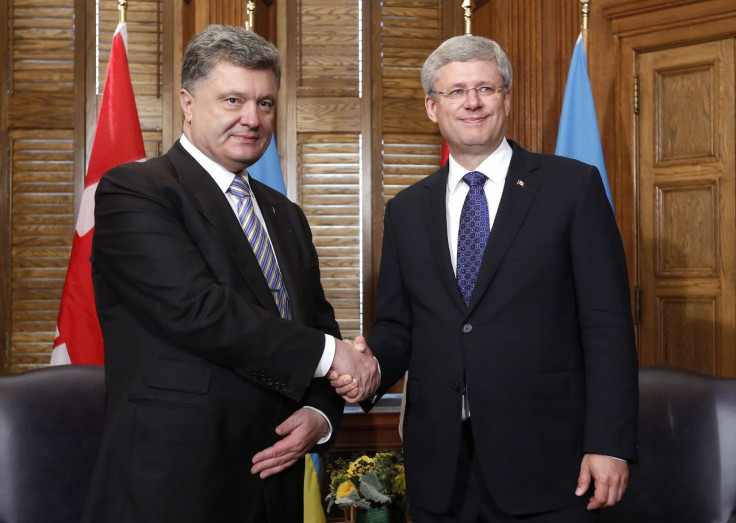Canada To Expand Involvement In Ukraine Russia Crisis, Mulls Deploying Military Training Mission

Canada’s hands are full into two wars these days. First was the ISIS. Now, it wants to expand its involvement in the Ukraine crisis. From just sending non-lethal military equipment, Canada is now mulling to deploy a military training mission to Ukraine.
Jason Kenney, the federal defence minister, had admitted to reporters on Wednesday that Canada and Ukraine are currently “actively” discussing about the training mission. “We’re exploring options actively about assisting Ukrainians with military training … I would say, stay tuned.”
Kenney’s announcement came in the heels of Britain’s declaration on Wednesday, where it would send in March 75 military trainers to Ukraine. These soldiers will reportedly train their local counterparts in military intelligence, logistics and battlefield medical procedures.
Canada’s military training mission to Ukraine, Kenney said, will teach the Ukrainians how to tackle medical evacuation and trauma care. "That's the kind of technical training that we can offer," he said Wednesday, in what seemed to be an assurance that whoever will be deployed in the coming weeks to Ukraine will not suffer the same fate as those who have been deployed to Canada’s ISIS mission.
Canada had dispatched 69 commandos to advise Kurdish troops in Iraq versus the rampaging ISIS last fall. However, the group had been engaged at least four times on the front lines with the terrorists.
Since the Ukraine crisis erupted in March 2014, Canada had been diligent in sending non-lethal military aid, such as defensive military gear, including flak vests, helmets and cold-weather clothes. A recent deal had likewise been hammered where Canada will provide Ukrainians radar satellite images that shows Russian troop movements in its border region.
Should Canada pursue the military training mission, it would need to first seek the approval of the parliament. NDP Leader Tom Mulcair said that if ever the proposal gets approved, it should be carried out as part of the U.S.-led alliance and not by Canada independently.
"If we are going to work towards anything different than what we're doing now, which is non-kinetic flak jackets ... we could send night vision goggles. That's been agreed to and we're on board with that," he told Canadian Press. "Anything beyond that requires two things. One, concerted NATO action. Two, a decision by the Parliament of Canada."
To report problems or to leave feedback about this article, e-mail: e.misa@ibtimes.com.au.





















